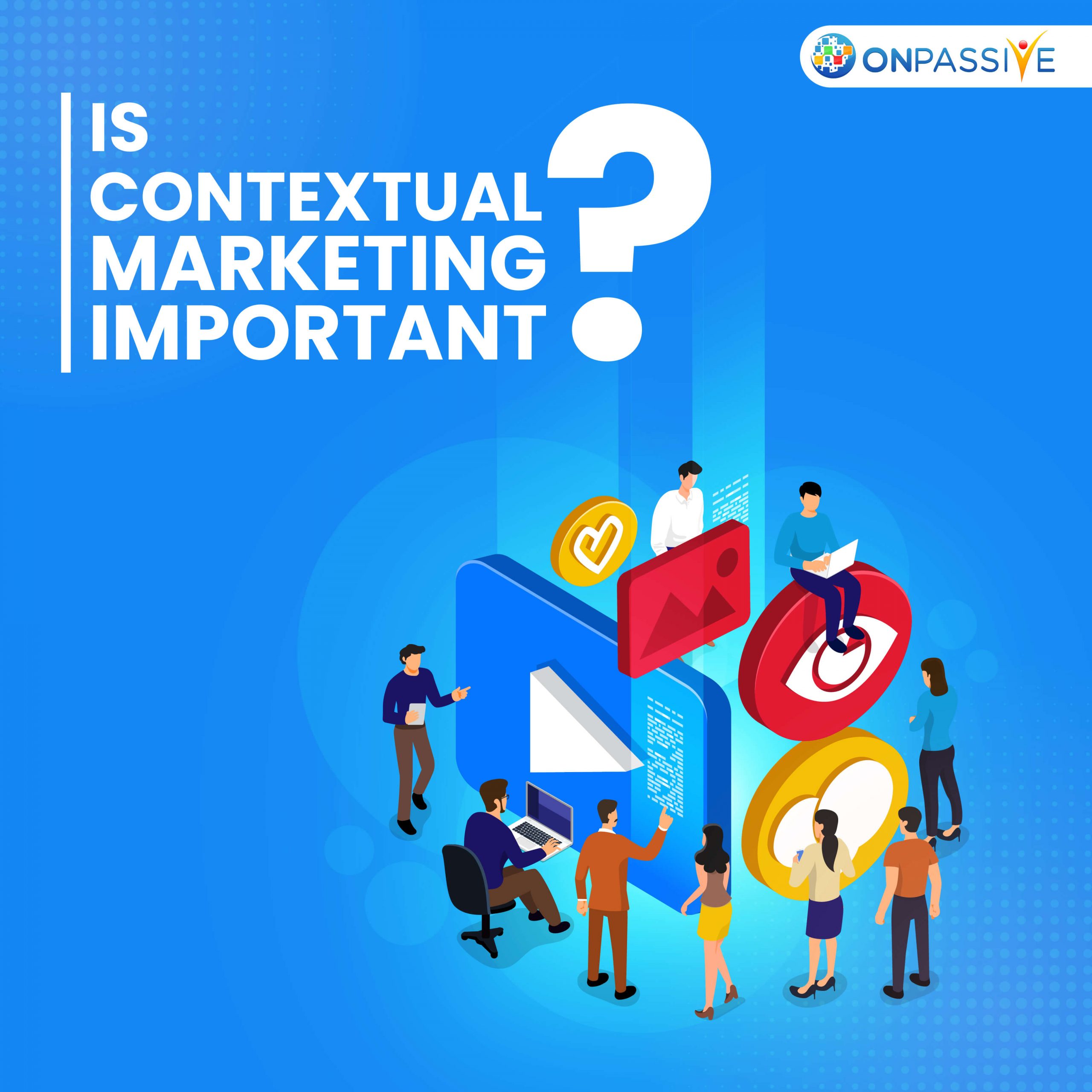Contextual marketing is a modern marketing strategy to communicate the correct message to the right people at the right time through the appropriate channel. This is what the term “marketing context” refers to.
By offering data-driven information tailored to an individual’s position and wants, a contextual marketing strategy improves the overall customer experience. Engaging material on the channel your target audience prefers helps build stronger bonds.
What Is The Definition Of Contextual Marketing?
Contextual marketing strategy is an online and mobile advertising type that targets users based on their search terms or current web browsing behavior. The idea is to provide clients with adverts for products and services they are already interested in.
Contextual marketing is cost-effective since it allows firms to create more sales by showing relevant adverts. You can save money by not promoting advertising that doesn’t fit the needs of your users. Contextual advertising’s success may be easily measured, allowing you to tweak your plan as needed.
What Is The Process Of Contextual Marketing?
Contextual marketing campaigns are simple, but a few things to consider. We’ll go over how to set up contextual ads and how contextual marketing works in this part.
The first step is to figure out the most crucial components of your promotion. Choose a theme, such as gadgets, clothing, or makeup, and then 5 to 50 keywords pertinent to that topic. You may also select whether your promotion will reach a broad or specific target. Your ads will appear on pages that match your defined keywords if they have a wide reach but only on pages that match your chosen keywords if they have a specific space. Negative keywords should be excluded if you don’t want your ads to appear in a particular search query.
Google scans the network for the most relevant pages once you describe the parameters of your promotions. The software looks at page structures, languages, words, graphics, link patterns, and other factors to determine which websites your ads will work on. When consumers search the Internet for something, the server analyses the data from the URLs they visit and selects the best pages for your adverts to appear on. Your advertising can be put on the website if the set parameters fit the content.
Companies can use this method to reach out to people interested in their products and improve the success of their advertising campaigns. We’ll show you some examples of successful contextual marketing in the next part to help you improve your advertising.
The blog describes the benefits of contextual marketing, explains it, and explains how it works.
Benefits Of Contextual Marketing
Affordability
A contextual marketing strategy does not necessitate a significant financial investment. All you need is the correct data to enhance the context of your conversations. This entails using a CRM application to collect and retrieve customer data. When it comes to finding the ideal fit for your business, you have many options. Even tiny enterprises on a shoestring budget can find CRM solutions.
Traffic that is targeted
Contextual marketing strategy makes use of advanced behavioral targeting. You can target your prospects just when they’re about to make a purchase choice by focusing on specific behavior and demography. This also allows you to put your brand in the spotlight at the correct times to boost brand awareness, recall, and engagement.
Customer satisfaction and experience have improved
Wouldn’t it be fantastic if the solution to your problem emerged out of nowhere? Because contextual marketing is individualized, each customer’s marketing message is sent at the right time and in the right place. Customers shouldn’t be inundated with marketing communications they don’t want or need. You send them the information they require at the appropriate time.
By enhancing the context of your marketing effort, you can ensure that each prospect or customer is effectively addressed. When customers believe they’re getting more than just another sale, they gain trust and confidence in your organization.
Customer participation has increased
Contextual marketing seeks to develop consumer relationships by anticipating their needs. This creates an opportunity for interaction. You not only get to put your company’s message in front of clients, but you also get to encourage active involvement with it. The more you can engage your customers, the more likely they will stick with you and become brand advocates.
Increased revenue and sales
Because the advertising you’re running is precisely targeted, personalized, and strategically positioned when your customer is about to make a purchase, conversion rates will be better, and your sales numbers will rise. Traditional mass-marketing strategies are ineffective because they target the broad population rather than a specific group on a wide scale.
Conclusion
A contextual marketing strategy is a low-cost method of reaching out to your target demographic and increasing sales and revenue. Because it’s purposefully targeted at a specific demographic, you can readily assess its success by focusing solely on that channel.


























































![Social Media Spring Cleaning [Infographic] Social Media Spring Cleaning [Infographic]](https://imgproxy.divecdn.com/9e7sW3TubFHM00yvXe5zvvbhAVriJiGqS8xmVFLPC6s/g:ce/rs:fit:770:435/Z3M6Ly9kaXZlc2l0ZS1zdG9yYWdlL2RpdmVpbWFnZS9zb2NpYWxfc3ByaW5nX2NsZWFuaW5nMi5wbmc=.webp)
![5 Ways to Improve Your LinkedIn Marketing Efforts in 2025 [Infographic] 5 Ways to Improve Your LinkedIn Marketing Efforts in 2025 [Infographic]](https://imgproxy.divecdn.com/Hv-m77iIkXSAtB3IEwA3XAuouMwkZApIeDGDnLy5Yhs/g:ce/rs:fit:770:435/Z3M6Ly9kaXZlc2l0ZS1zdG9yYWdlL2RpdmVpbWFnZS9saW5rZWRpbl9zdHJhdGVneV9pbmZvMi5wbmc=.webp)












